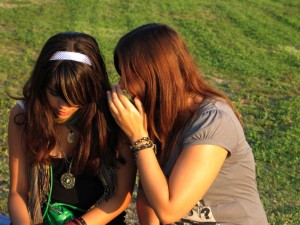Last week, we touched on consent laws and how states either have a one-party or two-party system. One interesting caveat that plays into consent laws is the idea of an “expectation of privacy,” and this concept is one of the main reasons that there are separate and different laws in regards to the recording of audio and video. Because some places do provide for people to have an expectation of privacy, recording audio may be illegal.
Here’s an example: Say you’re walking down the street with your friend, having a conversation. And lets say that there is a man standing on a street corner, three blocks away from you. Now, as you’re walking and talking with your friend, you both can see the man, and you know that he can see you. With that, obviously, the fact that you are walking down a street with your friend, in plain sight, clearly, that’s not going to be considered “private.”
So recording video of this scene would be fine.
Common sense, right?
However, when you’re walking down that same public street with your friend, having your conversation, knowing that the man down the street can see you, you surely don’t expect that the man can hear you as well. That’s because when we have conversations with people, depending on the setting, we have a higher expectation of privacy: Even though we are in a public space, we don’t expect our private conversations to be heard by anyone other than the person we are talking to.
Therefore, in California, the audio associated with video recordings is always (initially) considered private, and because of this, public surveillance cameras are by law not allowed to record any audio.
Just like with consent laws, though, the exceptions to expectations of privacy come into play when safety issues arise. If someone has an expectation of any kind of impending danger or violence, then that person can record audio that would otherwise be deemed illegally recorded. In fact, in some situations, you can get a judge to sign off on it beforehand, giving you legal permission to record audio if you think your life or the lives of others may be in danger.
